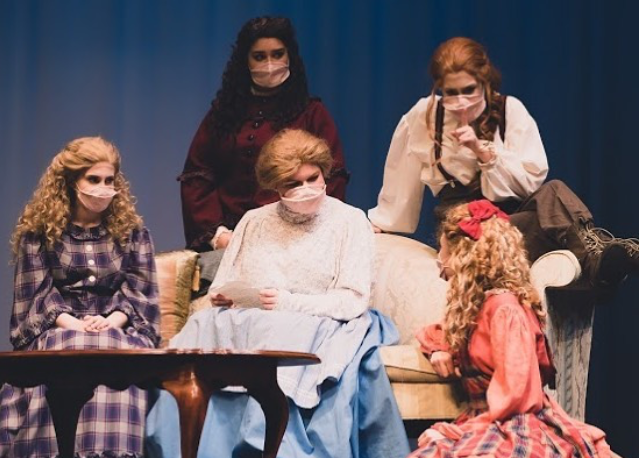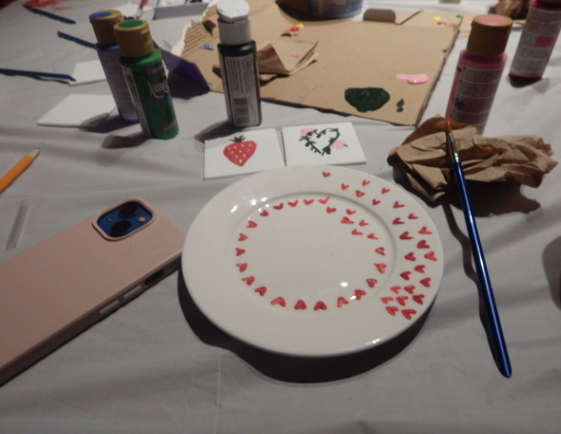Little Women: What this modern woman learned by joining the March family
Courtesy of Stephanie Hatmaker
The March Family gathering together to read a letter from their father, who is at war.
At just 15, Louis May Alcott vowed she would one day be famous after realizing the poverty of her family. At Orchard House in Concord, Massachusetts, she and her family lacked money but were rich in connections, visiting frequently with future American literature giants and neighbors, including Ralph Waldo Emerson and Henry David Thoreau.
Alcott was a creative problem-solver and immortalized life in the Civil War era with the March girls in her famous semi-autobiographical novel, Little Women. Though the circumstances have changed, the lessons still apply – especially for the character Amy March, and me, as I portrayed her in this spring’s school musical.
The Covid restrictions changed the way I approached my character in this musical, and made me ponder more about the restrictions for women in pre-1900’s America.
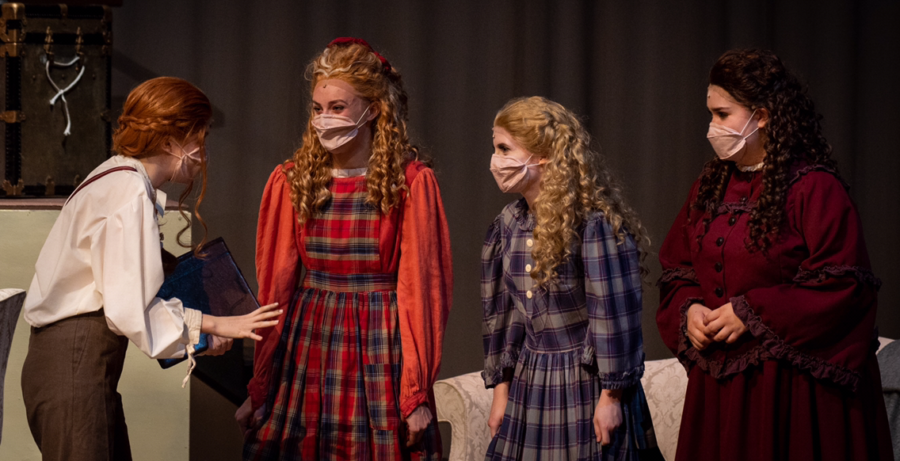
In the mid- to-late 1800’s, a girl’s options to advance in society were extremely limited: marry rich or be the best at what you do. Angela Smithhisler, drama teacher, director of Little Women, and history teacher, reflected on these restrictions.
“Women couldn’t hold office, couldn’t hold property, couldn’t even show their ankles! And we forget just how short in history women have held the right to be politically active. In this time period, we have early women suffragettes who are starting to push for the right to vote. To me, as a modern American woman, it is astounding to think of how stifling it must have been to be a woman in 1865,” said Smithhisler.
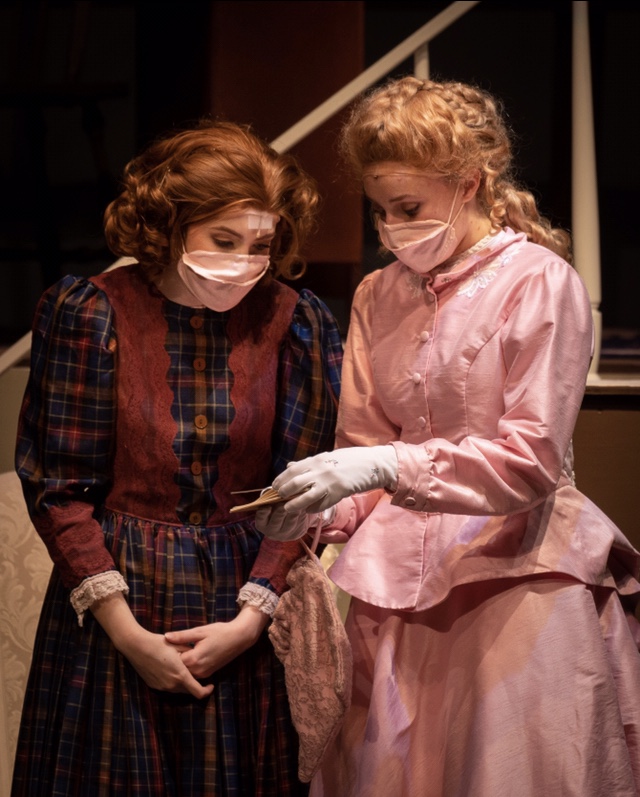
Amy, the youngest March sister, chose the best option for herself and pursued it. She aspired to grow up in elegant society, despite her family’s situation, by marrying a wealthy man. Amy always wanted to meet societal expectations… not for acceptance and for others, but to distinguish herself and use society to her advantage.
This is in contrast to her sister, Jo, who followed her dream to write, even though she was breaking away from the norm. Sister Meg was satisfied to marry without wealth. Sister Beth suffered a tragic early death, without a future to explore. Little Women explores their choices and the sisters’ relationships with each other with the backdrop of war.
“Although it takes place decades ago, I think we all can look at the story of a tight-knit family and find something of value there,” said Smithhisler.
Societal boundaries in that time were restrictions that made life challenging, but the difficulties forced girls and young women to realize what their priorities are, find strength together, and determine creative ways to get what they want out of life.
Similarly, Covid restrictions brought complicated challenges to our production that we had to work around. Masks were still required, so we had to make sure we were acting with vocal inflection and expressive with our eyes and movement.
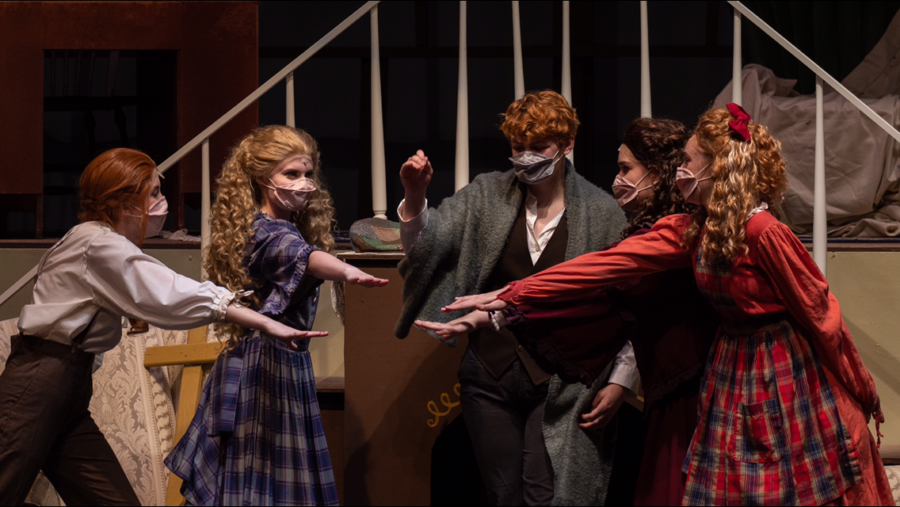
In addition, about halfway through our rehearsal period, our cast was informed that we could not touch each other in any way throughout the show. I remember spending the rest of that rehearsal contemplating my character movement choices, frustrated at how different the show seemed without embracing, holding hands, or physically assisting other characters. We had to make creative choices and brainstorm on ways to complement the performance and portray emotion.
Smithhisler said, “Covid changed many things about the show and the process as a whole. For one, virtual auditions are not nearly as fun. Also, it was very hard for the actors to not be able to have any physical contact in this show. It is in their nature to want to bring that physical aspect to the stage and to their interaction with other characters. And honestly, especially for this show, not being able to hold hands or hug as sisters was very hard. But we made it work.”
Despite the COVID restrictions, I had to show character development to transition convincingly from the younger, bratty Amy to a distinguished married woman of society. I found I could relate to her tenacity with a single-minded focus driving her ambition, and I used that to determine my acting choices. Working with the directors pushed me to put myself in Amy March’s shoes and understand what she was going through.
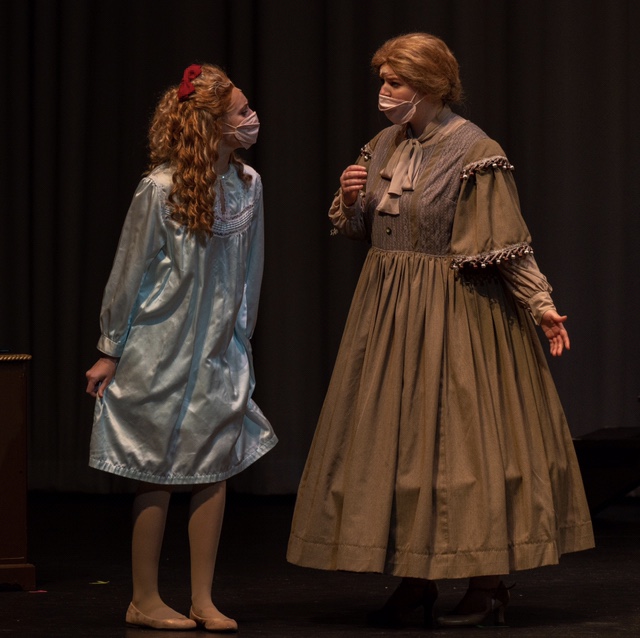
“Every show, we have a discussion about characterization,” Smithhisler said. “But essentially, we really wanted our actors to bring this story to life and not just parrot their memorized lines. We worked with the cast on getting them to really think about what they were saying, and have them visualize each relationship. Why is Amy so childish and bratty at times? Why is Meg struggling to want to please her sisters while at the same time push to grow up and marry? Why is Jo so frustrated with her place in the world? What is going through Marmee’s mind as she tries to raise her four daughters bravely by herself while her husband is off fighting in the Civil War?”
“All these motivations and thoughts behind the characters are questions we asked our actors to remember as they gave their lines. And I really think our actors excelled at getting into their character’s mind. It made the story that much more compelling to watch on stage.”
The entire cast and crew overcame restrictions with new solutions, carried on with optimism, and became stronger, more powerful actors as a result.
This seems similar to how the character, Jo March, modeled after Louisa May Alcott herself, set her sights on being a successful writer, despite severe restrictions and judgment from her peers.
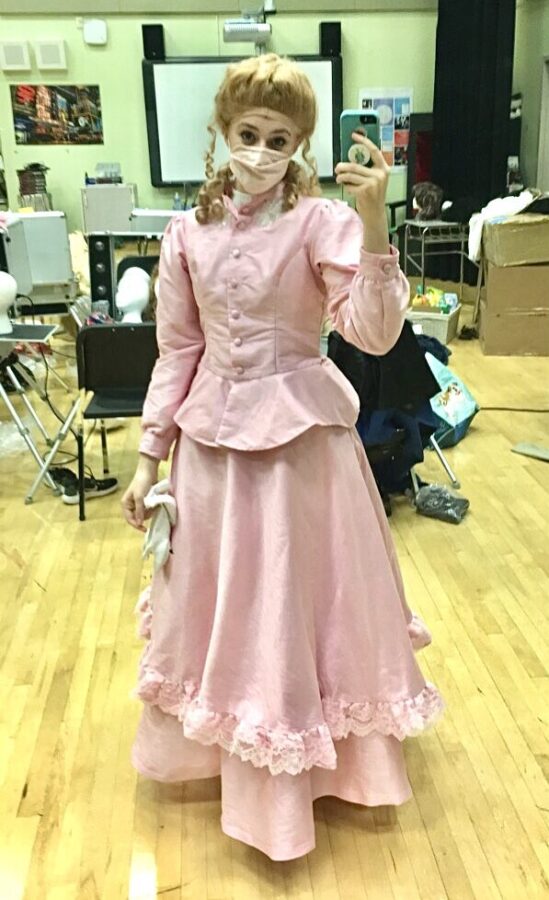
Young ladies of the time were limited by the same traditional expectations like those the character Jo faced. Their wardrobe, for example, consisted of large gowns, hoop skirts, and layers (which did not bode well with heat). Additionally, they did not have the freedom to show certain parts of their bodies, including ankles or elbows; it was seen as inappropriate and scandalous.
Jo wanted to defy standard apparel, just as she wanted to resist getting married, to increase her freedom and expression. This is still relevant today, but now there are many different career paths for women to follow.
Louisa May Alcott paved the way for women authors, and opportunities for women have continued to grow significantly since her inspiring success and words that inspired thousands of women to chase their dreams. There is still room for progress for more women to be hired in certain male-dominated fields, such as software developers (19%), financial analysts (39.9%), aerospace engineers (7.8%), architecture (25.5%) and pilots (5.2%).
The musical Little Women also has a message about how differences can be a strength, though it takes some growing up to see it that way. This was exhibited by the vastly different views and goals of Amy and Jo, leading to disagreements while they were both younger that grew into sisterly support once they were grown. Although both Amy and Jo both do marry in the end, they each found someone willing to support their wishes and ambitions. Amy’s perspective on womanhood was that women had freedom through wealth and resources, which differed from Jo’s belief that women should have freedom to pursue their passion first and foremost.
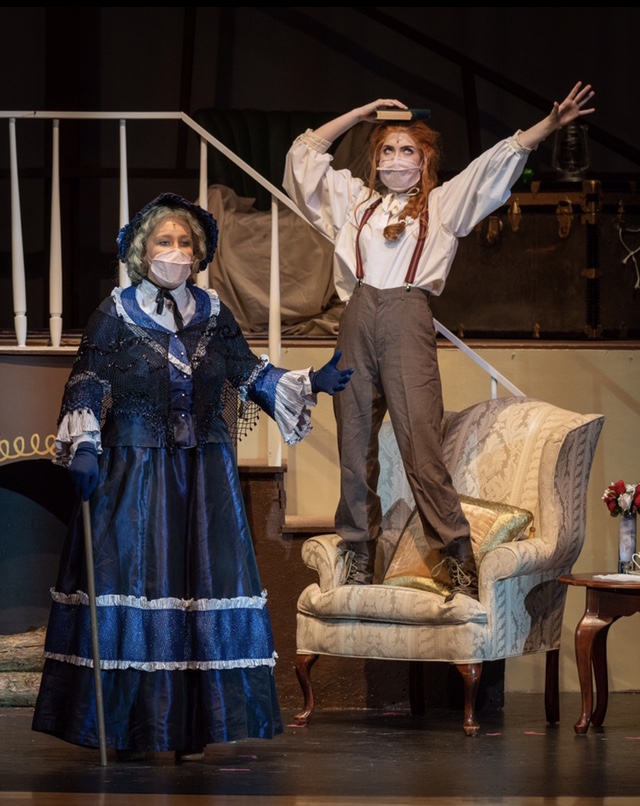
“I also just find it very funny that Alcott really didn’t want Jo to marry in the series, but was pressured by the publisher to marry her off simply because they were getting so many fan letters from little girls asking who Jo was going to end up with,” said Smithhisler. “I think it’s a sign of the times that Alcott was up against; she wanted this liberated, courageous female character, and society said ‘we’d rather see who she marries!’”
By playing Amy, I learned about the tough choices women faced and the ways they used family, togetherness, and support for each other’s hopes and dreams to overcome difficult times. Things change as girls grow up and decide what they want out of life, which is very relevant to me as a junior thinking about college and what I want to be in my own future.
”I think there are a number of lessons that a modern girl/woman could take from this book. One, family is always an important value in life. Two, fight for your dreams, even if the world is telling you to sit down and be quiet. And three, it is okay if things in life change. Jo felt betrayed that her sisters were growing up and leaving, marrying, etc… But change is okay. We all need to be able to adapt to whatever life brings us. This is definitely a lesson we’ve all learned this past year because of the pandemic.”
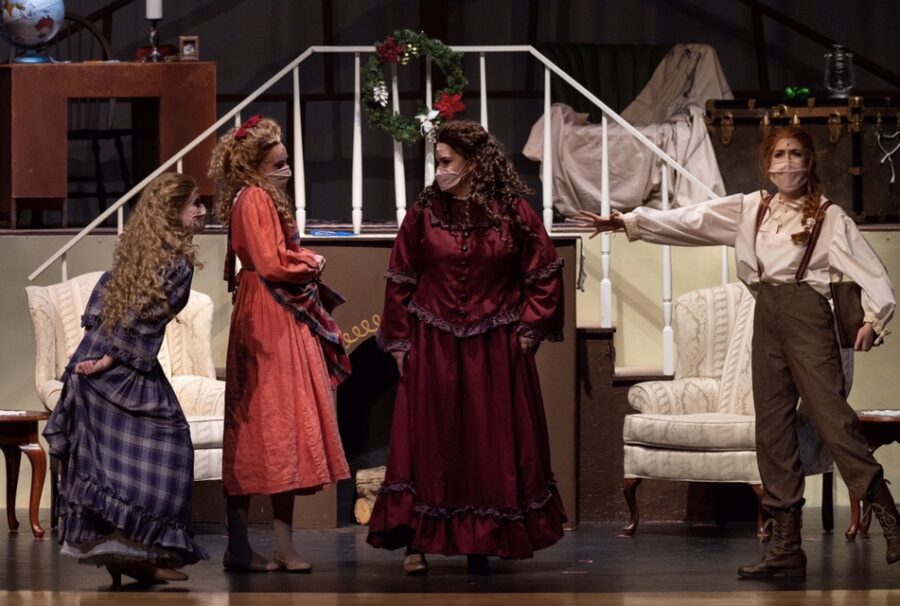
If there’s one thing we learned from the March sisters, it’s that it is important not to let others define you or make your choices for you. As a woman, and as a teen, you have to decide for yourself and make the future you want happen.
Your donation will support the student journalists of Linganore High School. Your contribution will allow us to purchase camera/recording equipment and software. We hope to raise enough money to re-start a monthly printed issue of our paper.


